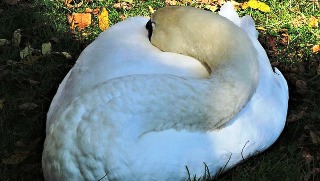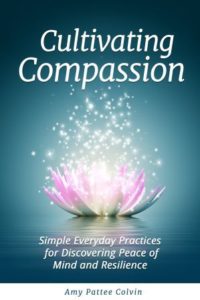Modern society teaches us that the best measures of success are productivity and achievement. However, this perspective takes its toll on our health, especially when it comes to sleep.
According to a study released by the CDC more than one-third of adults do not get enough regular sleep. The American Sleep Association reports that 50-70 million adults in the United States have a sleep disorder.
I have personally suffered from a sleep disorder. When going in for an overnight sleep lab, I asked the doctor how he defined normal sleep. He replied, “You close your eyes at night, and when you open them, it is morning.” I immediately burst into tears and laughter at the same time. I told him I couldn’t even recall a time when that was true for me.
To make a long story short, the diligence and creative thinking of a couple of fantastic naturopathic doctors helped me determine that my issue stemmed from an imbalance in my gut microbiome. After radically changing my diet for six months, I began to find relief, and four years later, I’m happy to report that I sleep “normally,” unless I eat a few too many yummy foods that my taste buds like but my body doesn’t.
Sometimes the causes of sleep disturbance are obvious, sometimes they’re not. Sometimes medical attention is required, so honor what your body tells you, and seek help if you need it.
But often harmony and balance are hard to find. We have difficulty moving from a state of tension to a state of relaxation at the end of the day. Many times we carry the energy of the day’s pressure and stress into the night.
The Importance of Finding Inner Balance
Yin equates to the energy of sleep, relaxation, receptiveness, stillness, softness, and night. Yang equates to the energy of activity, wakefulness, hardness, seeking, restlessness, and day.
Society appears to value Yang activities. Being productive, staying busy, working hard seem to be praiseworthy characteristics. Whereas relaxing, taking time off, and self-care is often frowned upon.
Yet, it is imperative that the duality of Yin and Yang remain in balance. The two energies are mutually supportive. They cannot be separated; they are essential to one another. Day does not exist without night. To feel joy, one must be in touch with sorrow. To appreciate cold, one must know hot.
The modern way of living often leads to an imbalance of Yin and Yang in the body, which in turn affects the quality of sleep. Stress, anxiety, or a spinning mind that won’t turn off causes Yang energy to move upward into the head and Yin energy is shunted off to the lower part of the body. This energy pattern causes tiredness in the body and overactivity in the mind. We can push through this imbalance, but ultimately living this way is not sustainable.
Difficulty sleeping often arises when the body is depleted and craves rest but the mind is full of restless fast-paced energy, and it doesn’t want to transition into relaxation.
Eastern and Western Perspectives
Ancient Taoist texts compare Yin energy to the oil in a lamp and Yang energy to the flame. The flame is quickly noticed. Its light actively serves a noticeable and functional purpose. This is like the Yang energy of the productive and effective person.
Yet the oil, quietly sitting still in the background, sustains the flame. This is like the Yin energy of relaxation and sleep. The lamp cannot function without both parts.
In parallel, Western medicine explains this duality through two branches of our nervous system.
The sympathetic nervous system often thought of in terms of fight or flight, is designed to help us manage stressful situations. It is what helped our ancestors stay safe from wild predators. Today, this branch of the nervous system still helps us to solve critical problems, but it is often chronically triggered by stress and anxiety. Today’s predators take the shape of meetings, traffic, challenging relationships, distressing current events, and at times even holidays. Our perceived predator is whatever triggers the stress response. The sympathetic nervous system is associated with Yang energy and is the flame of your internal lamp.
Evening Qigong Routine to Help You Sleep
1) Stand beside the bed with your feet hip-width apart. Close your eyes or drop your gaze. Begin breathing deeply into the belly, in through the nose and out through the mouth. Gently begin bouncing by bending and activating the ankle, knee, and hip joints. This movement should feel effortless. Your arms hang gently from the shoulders. All you are doing is bouncing and breathing deeply into the belly. You can be quick or slow, but what feels right to me is about eight bounces on the in-breath, and eight bounces on the out-breath. Follow your body’s wisdom. Do this for a couple minutes.
2) Bring the bouncing to stillness. Then with an in-breath gently raise the arms in front of you. At mid-chest height, draw the hands inward toward your core. With an out-breath draw the hands, palms toward the earth back down toward your hips. Your arms make gentle, fluid, circular motions. Inhaling up, exhaling down. Do this for a couple minutes then end the movement with your hands gently relaxing by your thighs.
3) With the hands still by your thighs begin to gently and slowly circle the head on your neck. Do not force anything. Simply let your head tip to one shoulder, then drop your chin to your chest and roll the head to the other shoulder, gently lift up and back and roll toward the first shoulder. Allow your entire upper rib cage to follow this motion. Bring movement into the neck and upper chest. Exhale as your chin slides across your chest, inhale as your head gently tilts backward. Circle in one direction for a minute or so, then switch directions and circle the opposite way.
4) Get into bed and lay on your back. Place one hand on your chest and the other on your belly. Gently and slowly inhale and notice the hand on your belly rise followed by the hand on your chest. Pause for a moment. Then gently exhale and notice the hand on your chest drops followed by the hand on your belly. Pause again. Then repeat this cycle of long deep breaths for as long as you wish. Pausing at the top of the inhalation, and the bottom of the exhalation. Notice the hands rising and falling both at the chest and belly as you breathe.
Guided Meditation to Relax Body and Mind
If you’re not already drifting off, listen to this guided meditation, Relaxing Into Sleep which may help you relax even further so you are able to drift into sleep.
This meditation guides you through a relaxing body scan as you drift into sleep. We visualize melting into the surface beneath us and practice quieting our minds.
This is my most popular meditation on Insight Timer with nearly 130k plays. You can access this meditation through my YouTube channel or download the Insight Timer app and search for Amy Pattee Colvin to find this track.
I know how important it is to get a good night’s sleep. I know that it makes a huge difference in how things go in the day if I’ve slept well or slept poorly. Daily, take time to transition out of the Yang (sympathetic – active) energy at the end of the day into the Yin (parasympathetic – relaxed) energy. Wake up full of energy and vitality, and give your lamp the oil it needs to shine bright and spread its warmth.
For even more support, enroll in my free weekly qigong group, or join a BodyMind IntelliSense or Compassion Cultivation Training program.










